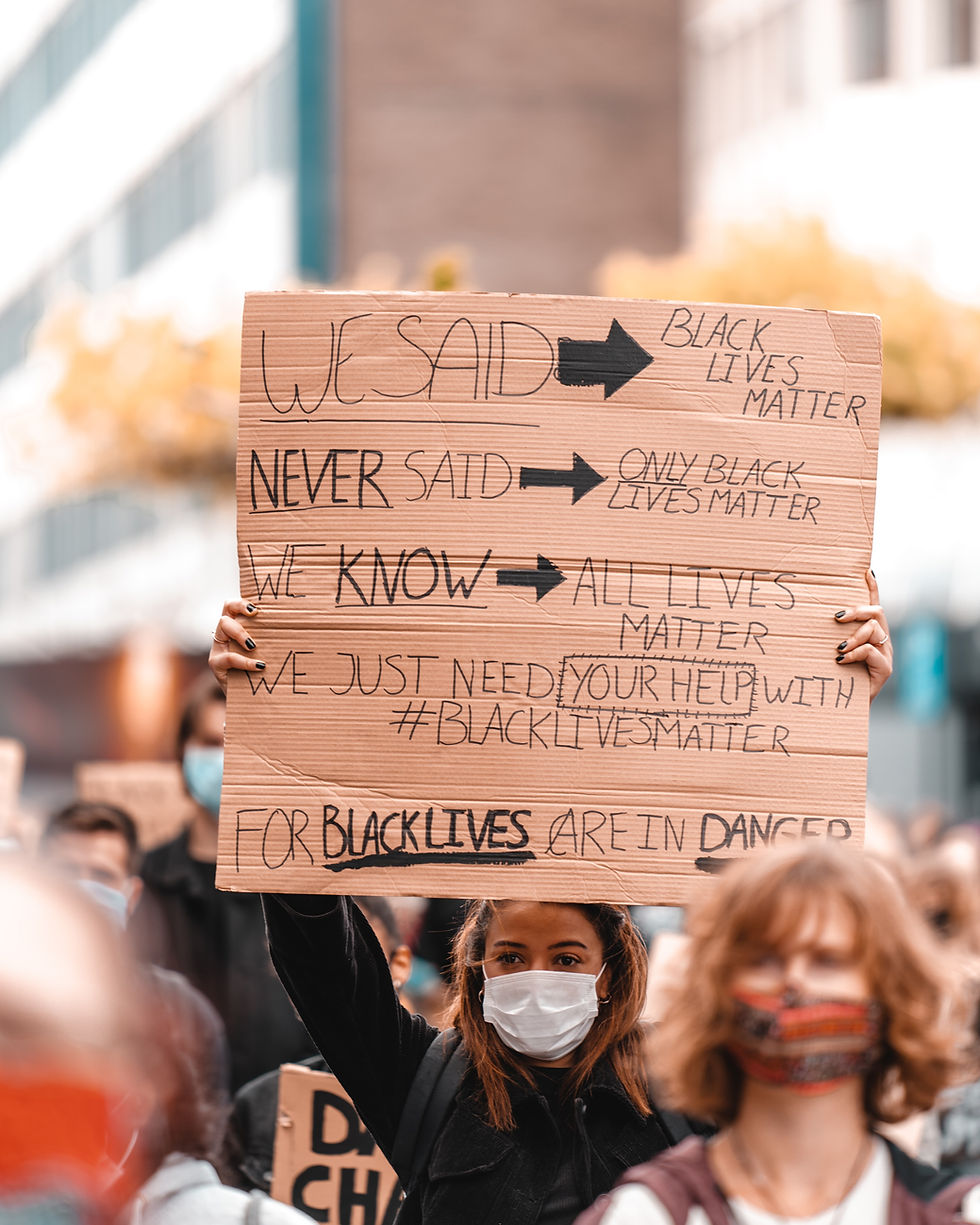Equitable and Anti-Racist Pedagogies
- Engaging Politics

- Jun 26, 2020
- 3 min read
Updated: Aug 18, 2020
It is absolutely essential that our course design, assessments, and policies are equitable. Equity, as opposed to equality, means that fairness and justice must be taken into account so that all students who enter our classrooms can succeed in our classes. Rather than giving every student the same tools (equality), we need to give each of our students what they need so that they can emerge from our classrooms with the knowledge and skills we hope they acquire. Given our racist history (in the U.S. and other contexts) equity MUST include active anti-racism on the part of instructors, and this includes a thoroughgoing reconsideration of all our course materials and our disciplinary habits.
Examining our own relationships to white supremacy
To be anti-racist pedagogues, we need to examine ourselves as people and as academics, to assess the ways we are influenced by and/or contributing to white supremacy.
This distillation of "White Supremacy Culture" by Kenneth Jones and Tema Okun is a great starting place for thinking about the ways our lives and values have been ordered to maintain white supremacy.
For anyone who has white privilege, Layla Saad's Me and White Supremacy is a fantastic resource for self-reflection and correction.
For all instructors (those with white privilege and those without) we recommend:
Janet Helms' A Race Is a Nice Thing to Have: A Guide to Being a White Person or Understanding the White Persons in Your Life (2007)
Ijeoma Oluo's So You Want to Talk About Race (2018)
Anneliese Singh's The Racial Healing Handbook: Practical Activities to Help You Challenge Privilege, Confront Systemic Racism, and Engage in Collective Healing (2019).
We also strongly recommend Scene on Radio's phenomenal podcast, "Seeing White."
Finally, this Google Doc of Anti-Racist Resources is an accessibly organized treasure trove.
If you need a primer on institutionalized racism, consider this crowdsourced syllabus from JSTOR or this scaffolded list of resources from This is Not a Riot.
Equity in the Discipline and the Classroom
"A Push for Equitable Assessment" (June 25, 2020 -- Madeline St. Amour)
"Not Just the Syllabus, Throw the Whole Discipline in the Trash" (June 15, 2020 --Ciarra Jones)
Decolonizing Religious Studies and its Layers of Complicity (August 17, 2020 -- Natalie Avalos and David McConeghy for The Religious Studies Project
"White Academia: Do Better" (June 8, 2020 -- Jasmine Roberts)
"A Dozen-Plus Ways You Can Foster Educational Equity" (July 1, 2020 -- Viji Sathy, Kelly A. Hogan and Calvin M. Sims)
"What does it mean to support vulnerable students during the pandemic?" (July 2020 -- Beckie Supiano)
"Becoming an Anti-Racist Educator" (Wheaton College, MA)
"Against Cop Shit" (February 13, 2020 -- Jeffrey Moro)
"Naming, race, and white supremacy in the teaching of religion and Islam: Incorporating intersectional interventions" (November 17, 2019 -- Martin Ngyuen)
See also the "Islamophobia is Racism" Syllabus
In 2017, the Journal of Biblical Literature published a Forum, "Black Lives Matter for Critical Biblical Scholarship" with an introduction by Adele Reinhartz and several important pieces for anyone in Biblical Studies:
"A Reflection on the Black Lives Matter Movement and Its Impact on My Scholarship" (Wil Gafney)
"The Scholarly Network" (Nyasha Junior)
"At Exodus as the Door of (No) Return" (Kenneth Ngwa)
"The African American Bible: Bound in a Christian Nation" (Richard Newton)
"Research on the New Testament and Early Christian Literature May Assist the Churches in Setting Ethical Priorities" (Bernadette J. Brooten)
"Black Scholarship Matters" (Tat-Siong Benny Liew)
Religious Studies News published a Spotlight on Teaching Issue in 2018 that addressed pedagogues in Religious Studies more broadly: "Teaching Religion As Anti-Racist Education," edited by Sara Jakoby, The Issue includes six extremely helpful articles and a Resources page for further reading:
"Decolonial Approaches to the Study of Religion: Teaching Native American and Indigenous Religious Traditions" (Natalie Avalos)
"Whiteness Studies—Why Not to Teach It (As an Untenured Professor)" (Brett J. Esaki)
"Anti-Racism in Community-Based Education" (Tiffany Puett)
"Skin in the Game: Raising the Stakes with The Race Card Project" (Richard Newton)
"Anti-Racism in the Religious Studies Classroom: Compassionate Critique and Community Building" (Martha Smith Roberts)
“Saying the Wrong Thing”: Experiences of Teaching Race in the Classroom" (Rima Vesely-Flad)
And don't forget to consult the Wabash Center's Teaching Justice page!



Comments